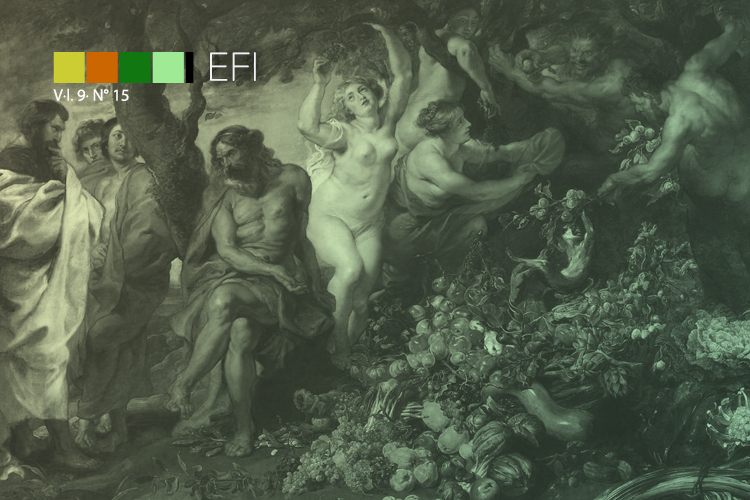For an anti-speciesist integral environmental education law
Contributions from philosophy, ethics and education
Keywords:
anti-speciesism, environmental ethics, cruelty, compassion, educationAbstract
As philosophy teachers we have been tackling in our classes the Integral Environmental Education Law that governs our country, from an anti speciesist perspective. Taking this recent law into account, we have actively sought the promotion of knowledge and educational experiences in higher education institutions through its incorporation in the curricular units (Philosophy and Education and Ethics and Citizenship Building, respectively). This article departs from the following factum: environmental education does not recognize speciesism or carnism as a problem, even more, it tends to make the problem invisible. On this ground, we will propose arguments that challenge speciesism on the basis of the concept of sentience, which impose on us the duty to morally consider and not to harm all sentient beings. Once admitted this latter, we move towards the question of the rights of nature, asserting, in tension with environmental ethics, that non-human animals are bearers of rights and respecting them is essential for “good living”. In the final sections, we will look at singular school situations that reflect the ideology of carnism. Drawing from a counter-cruelty pedagogy, we propose the need for teacher-training that makes visible the logics of cruelty naturalized in school culture, in order to promote transformations that foster relationships of compassion and empathy.
References
Barrionuevo, A. y Samamé, L. (2022). Feminismo anti-especista en la Ley de Educación Ambiental. Un análisis ético-político. Estudios. Revista del Centro de Estudios Avanzados, 48, 53-73. https://revistas.unc.edu.ar/index.php/restudios/index
Barrionuevo, A. y Samamé, L. (2023). Maestras anti-especistas: Hacia una pedagogía contra la crueldad. En E. Mancini y C. Caballero (Comps.), Maestras argentinas. Entre el mandato y la transgresión. Centro Cultural de la Toma Ediciones (en prensa).
Córdoba. Ministerio de Educación de la Provincia de Córdoba. Dirección General de Educación Superior. (2022). Itinerario pedagógico didáctico. Filosofía y educación. http://dges-cba.edu.ar/wp/wp-content/uploads/2022/12/06_IT-FILOSOFIA-Y-EDUCACION_v4.pdf
Faria, C. (2016). Lo personal es político: feminismo y antiespecismo. Revista latinoamericana de estudios críticos animales, II(III), 20-38. https://revistaleca.org/index.php/leca/article/view/109
Horta, O. (2012). Tomándonos en serio la consideración moral de los animales: más allá del especismo y el ecologismo. En J. Rodríguez Carreño (Ed.), Animales no humanos entre animales humanos (pp. 1-25). Plaza y Valdés.
Joy, M. (2013). Por qué amamos a los perros, nos comemos a los cerdos y nos vestimos con las vacas. Una introducción al carnismo. Plaza y Valdés.
Kymlicka, W. y Donaldson, S. (2018). Zoopolis. Una teoría política para los derechos de los demás animales. Editorial Ad-hoc.
Ley 27621. Ley para la Implementación de la Educación Ambiental Integral en la República Argentina. (3 de junio de 2021). Boletín Oficial N.° 34.670.
Mèlich, J.-C. (2014). Lógica de la crueldad. Herder.
Mosterín, J. (2014). El triunfo de la compasión. Nuestra relación con los otros animales. Alianza Editorial.
Pezzetta, S. (2020). El giro animal: impacto y desafíos para el Derecho latinoamericano. Revista chilena de derecho animal, 1, 29-36. http://revistaderechoanimal.cl/wp-content/uploads/2020/11/Silvina-Pezzetta.pdf
Samamé, L. (2020). Luces y sombras del pensamiento racional. Una aproximación a la filosofía y la epistemología en clave conceptual e histórica. En: G. Granero (Coord.), Introducción a las Ciencias Sociales. Una perspectiva desde Ecuador y Latinoamérica (pp. 17-48). Ed. Raiku.
Samamé, L. (2022). Schopenhauer, Judicial Compassion, and the case of Cecilia, the chimpanzee. Society & Animals. Journal of Human-Animal Studies. Ed. Brill (en prensa).
Segato, R. (2018). Contra-pedagogías de la crueldad. Prometeo Libros.
Singer, P. (2002). Animal Liberation. HarperCollins.
Zaffaroni, E. (2011). La Pachamama y el humano. Ediciones Colihue.

Downloads
Published
Issue
Section
License

This work is licensed under a Creative Commons Attribution-NonCommercial-ShareAlike 4.0 International License.
Atribución No Comercial Compartir Igual (by-nc-sa):
No se permitirá un uso comercial de la obra original, ni de las posibles obras derivadas, la distribución de las cuales se debe hacer con una licencia igual a la que regula la obra original.






